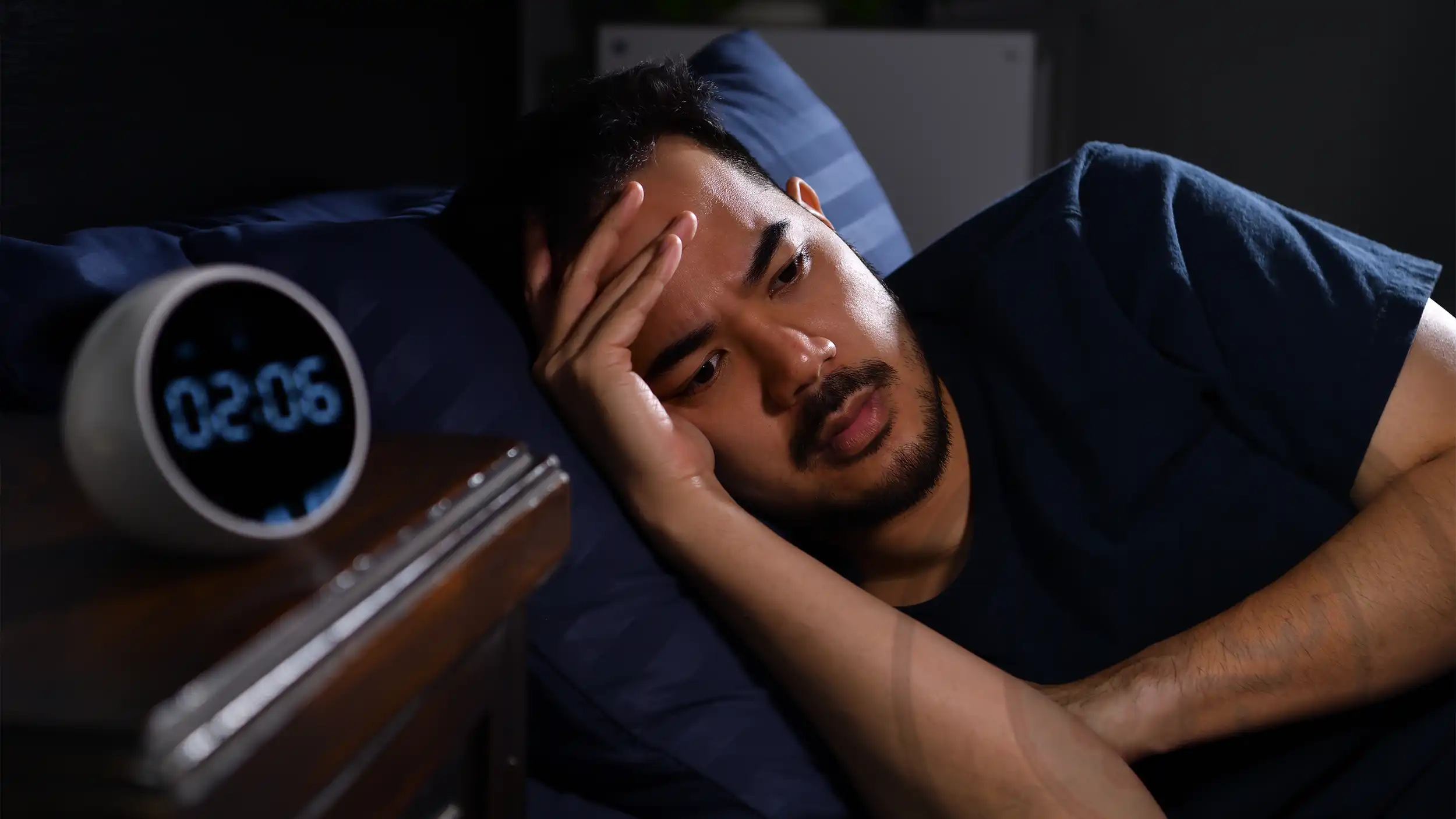
Insomnia
Insomnia is a very common sleep disorder that can prevent sufferers from falling asleep no matter how tired they feel, or keep them awake for hours in the middle of the night, anxiously watching the clock.
Definition Insomnia
Insomnia is defined by the World Health Organisation as a "disturbance of sleep onset and sleep maintenance" or "non-restorative sleep present for at least three nights a week", associated with a feeling of fatigue, tiredness or inefficiency during the day.
It is, therefore, a problem that must be defined and evaluated not only by the quantity of hours slept, but also by their quality.
It is possible to distinguish different types of insomnia:
- initialdifficulty falling asleep
- central: frequent awakenings and difficulty in getting back to sleep
- terminal: early awakenings in the morning
Insomnia Causes
Emotional and psychological factors such as stressanxiety and depression can be causes of insomnia, as well as physical ones related to health status (e.g. chronic pain, asthma or allergies).
Reasons that may contribute to the onset of this disorder include bad daily habits (especially those related to sleep), the use of certain medications or specific reasons such as jet lag, job interviews, school examinations or doctor's visits.
Sometimes insomnia problems can last only a few days and resolve themselves, especially if related to specific circumstances.
In other cases, however, they may be persistent and lead to consequences such as:
- increased risk of psychiatric illness
- depression
- increased blood pressure
- stomach ache, slow digestion
- lower work performance
- concentration difficulties
- tendency towards antisocial behaviour
- risk of accidents at work or while driving
Although insomnia is one of the most common sleep disorders, it often manifests itself as a symptom of some other problem. The good news is that in most cases, insomnia can be cured by making changes that each of us can implement on our own and without resorting to drugs.
How to cure Insomnia without medication
When it comes to insomnia, the most commonly used treatment is pharmacological, which, under the right conditions, can be useful but can also have various side effects. In fact, international research bodies recommend its limited use and promote, due to its proven effectiveness, the cognitive-behavioural psychotherapy (TCC).
TCC for insomnia addresses the underlying causes of the disorder and not just the symptoms, as drugs do.
The cognitive intervention teaches how to recognise and change beliefs that affect sleep. The behavioural part helps develop healthy habits and correct behaviours that prevent good quality sleep.
Some of the techniques and strategies used in cognitive behavioural therapy are:
- Sleep educationIt is important to know how it works, i.e. the mechanisms and processes that regulate it, and to learn how negative behaviour and environmental factors can influence it.
- Sleep hygieneIt helps to correct negative habits that disturb our sleep, (such as caffeine intake in the last stages of the day, lack of regular exercise, taking long naps) and teaches how to develop better ones. It is, therefore, a fundamental part of therapy because it ensures better quality sleep.
- Relaxation trainingIt helps calm the mind and body, reducing somatic tensions, but also the cognitive tensions that contribute to the onset of insomnia. The techniques used range from progressive muscle relaxation to meditation and visualisation, and aim to deactivate the arousal system and facilitate falling asleep.
- Cognitive therapyIt involves identifying, restructuring and extinguishing false beliefs and useless ideas about sleep and replacing them with rational, positive and functional concepts.
- Controlling the stimulusIt helps to modify those behaviours that are thought to be correct for managing insomnia and that, instead, are not, and aims to re-establish a positive response to the bed and the bedroom.
- Sleep restrictionIt consists of limiting the time spent in bed, equalling the time actually slept in. Avoiding spending too much time in bed and in an awake state helps to sleep better.
- HypnosisThis technique has nothing to do with what is offered on television for entertainment purposes, which often conditions opinion. In reality, this method exploits psychological and physiological states of calmness and relaxation to evoke, through imagination, positive emotions and mentally experience behavioural changes.
TCC can help anyone suffering from insomnia. In fact, it does not matter how old you are, how long you have been taking medication or how long the problem has been present. None of these conditions are an obstacle to successful treatment or compromise its effectiveness.
The benefits obtained also last in the long term and have no side effects.
Best Cure for Insomnia according to European Guidelines
According to the European guidelines for Insomnia Disorder Cognitive Behavioural Therapy of Insomnia (CBT-I) is regarded as the first-line treatment for chronic insomnia in adults of all ages.
CBT-I is a multi-componential intervention carried out either individually or in a group in several sessions (usually 4 to 8), and consists of psycho-education interventions on sleep hygiene, behavioural techniques (sleep restriction and stimulus control), relaxation and cognitive therapy whose effectiveness has been proven in meta-analyses of controlled clinical trials. Pharmacological treatment may only be administered in the case of ineffectiveness of CBT-I or if CBT-I is not available to the patient.
(source: https://sonnomed.it/linee-guida-europee-per-linsonnia/)
